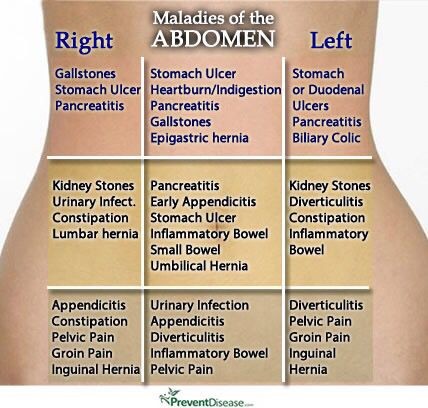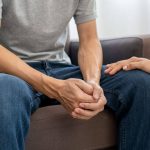
Contents
What Causes Lower Abdominal Pain in Men? 26 Possible Causes
Lower abdominal pain in men can be caused by problems in any of the following parts of the abdomen:
- Intestine
- Colon
- Appendix
- Rectum
- Testicles
- Prostate
- Penis
- Left kidney
- Left ureter
- Colon bladder
- Liver
- Pancreas
- Appendix
- Gallbladder
- Blood vessels and nerves
26 possible causes of lower abdominal pain in men
- Prostatitis
- Inflammation of the prostate gland can cause aches and pains in the lower abdomen and upper thighs.
- Prostatitis affects around 90% of men with persistent pelvic pain.
- A twisted testicle can cause intense discomfort in the genital area and lower abdomen and quickly turn into a medical emergency.
- The pain usually comes on unexpectedly and may cause the scrotum to enlarge. The discomfort may spread from the groin.
- Men with acute, unexpected testicular pain should consult a doctor as soon as possible.
- Inguinal hernias, although possible in women, are more common in men and can cause intermittent lower abdominal pain.
- A hernia occurs when a portion of the small intestine bulges through the lower abdominal wall, causing a painful lump on one or both sides of the groin.
- Lifting heavy objects, coughing, sneezing, or exercising can aggravate the discomfort.
- Surgery is the only option to treat the hernia and prevent stomach pain.
- Bacteria that enter the kidney and cause an infection can cause severe stomach discomfort around the flanks, radiating to the back and the umbilical area.
- Not drinking enough water and subsequent dehydration can increase the risk of kidney problems.
- Kidney stones passing through the urinary tract can cause severe lower abdominal pain as well as pain in the lower back, groin, or testicle.
- The pain may be severe enough to cause nausea and vomiting.
- A UTI can cause lower left or right abdominal pain, which increases with urination.
- Urinary infections can be caused by kidney disease, an enlarged prostate, or catheter use and may spread into the kidneys causing intense discomfort.
- Antibiotics are usually required to treat UTIs and prevent complications.
- Bladder infections and urinary infections are more common in women, but men can also have pain below the umbilical button as a result of bladder inflammation.
- Doctors advise men who complain of lower abdominal pain to be evaluated for enlarged prostate as well as bladder issues.
- Diverticulitis is a disorder in which tiny pockets (diverticula) in the colon become infected and inflamed, causing cramps and severe pain in the lower left abdomen.
- Other symptoms may include bloating, worsened stomach pain with bowel movements, or passing oily stools.
- Appendicitis in both men and women typically begins with a gnawing ache beneath the belly button, though it may present with lower abdominal pain (either side) as well.
- Men are more likely than women to experience appendicitis emergencies.
- With appendicitis, lower abdominal pain usually begins in the center of the stomach and spreads to the right side.
- Appendicitis can rapidly escalate into a medical emergency. If you experience symptoms of an inflamed appendix, contact your doctor immediately.
- Gas accumulation in the intestines can cause severe stomach cramps. Fiber-rich and carbohydrate-rich diets are two of the most common causes.
- Gas trapped on the left side of the colon can cause severe lower left stomach discomfort or even severe left-sided chest pain.
- Trapped gas on the right side of the colon can cause severe stomach discomfort that feels like appendicitis.
- Constipation involves difficulty passing firm stools or infrequent bowel movements that can cause cramping and lower abdominal pain.
- As you strain to have a bowel movement, the discomfort in your lower abdomen may worsen.
- IBS frequently causes severe abdominal pain in men.
- The discomfort may be limited to mild stomach discomfort after eating or intense stomach cramps on a frequent basis.
- Positive lifestyle changes, improved stress management, and eating a nutritious, well-balanced diet can help ease IBS symptoms.
- Simple indigestion may cause mild stomach pains in your lower abdomen.
- Indigestion can be brought on by digestive problems such as acid reflux, heartburn, or stomach ulcers.
- Crohn’s disease is an inflammatory bowel illness that causes diarrhea, stomach discomfort, and weight loss.
- It is differentiated from ulcerative colitis by a grapefruit-sized swelling in the lower right region of the abdomen. Tenderness and pain range from moderate to severe.
- Conditions that affect the stomach lining such as gastritis or ulcers may cause burning pain in the abdomen.
- Nausea, indigestion, belching, and vomiting are common symptoms.
- Blood in vomit or black, tar-like stools are worrying signs and need urgent assessment.
- Severe lower abdominal pain, bloating, and inability to pass gas are signs that you may have colon cancer obstructing your gut.
- Colon cancer most often affects the last part of the large bowel (colon), which is on the left side.
- Food contaminated with bacteria or parasites can cause severe stomach and abdominal discomfort.
- Other symptoms include nausea, vomiting, and diarrhea that may take up to 48 hours to go away.
- Viral infections can cause generalized abdominal pain that may start as a dull ache but intensify over time and may be accompanied by diarrhea or vomiting.
- Most bouts resolve in a few days, and the priority for treatment is to avoid dehydration.
- If you are concerned you are getting dehydrated or your symptoms are getting worse, see your doctor.
- Direct impact to the lower abdomen or manual vacuum aspiration can induce discomfort followed by bruising or internal bleeding.
- STIs including chlamydia and gonorrhea have been linked to pelvic discomfort.
- Symptoms may include urethral irritation and discharge from the penis.
- A simple muscle strain can cause pain in the abdomen that worsens with movement.
- Core exercises can sometimes cause soreness in the abdominal muscles even hours after a workout.
- Maintain proper hydration, and be sure to stretch while your muscles are still warm.
- If your sciatic nerve, which goes down to your legs from your buttocks, is pinched or trapped, you may have lower abdominal pain.
- Although sciatica typically causes back pain or leg tingling, some men experience abdominal, groin, or pelvic pain.
- Inflammation or excessive mobility in the sacroiliac joint can result in lower back pain as well as lower abdominal pain.
- Injuries to the pelvic bones can lead to lower abdominal pain.
- Back pain can sometimes be felt in the abdomen. This is known as referred pain.
- This type of pain is often exacerbated by bending and lifting.
- Stress can cause stomach knotting that can feel similar to abdominal pain.
What are common symptoms that accompany lower abdominal pain?
Lower abdominal pain in men may be accompanied by other symptoms that can help determine the underlying cause:
- Flatulence or belching
- Constipation and/or diarrhea
- Chest pain or discomfort
- Back pain
- Pelvic discomfort
- Painful urination
- Fever
- Rectal pain
- Sexual dysfunction
When to see a doctor for lower abdominal pain
Lower abdominal pain in men usually goes away on its own with home remedies and is no cause for alarm. However, you should seek medical treatment if:
- Pain is severe and does not go away after 2 days
- Pain is accompanied by:
- Fever
- Nausea
- Blood in stools
- Severe chest pain
Treatment varies based on the symptoms and causes, with some patients requiring only prescription medication and others requiring emergency surgery.
Treatment varies based on the symptoms and causes, with some patients requiring only prescription medication and others requiring emergency surgery.


